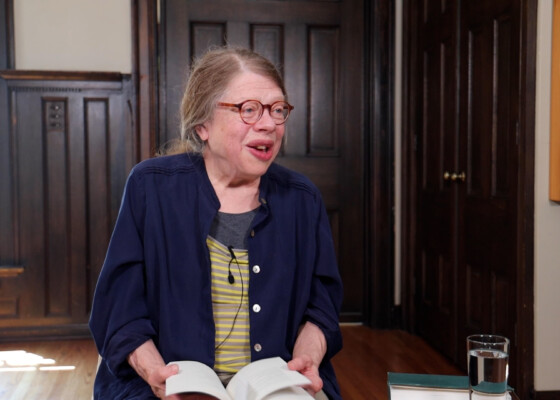Enough: How Hoosiers Can End Hunger
February 2, 2011Last week, the Indiana Humanities Council and Indiana’s Family of Farmers hosted author Roger Thurow to discuss “Food for Thought: How Hoosiers Can End Global Hunger.” Thurow was featured on…
Last week, the Indiana Humanities Council and Indiana’s Family of Farmers hosted author Roger Thurow to discuss “Food for Thought: How Hoosiers Can End Global Hunger.” Thurow was featured on a panel with Ted McKinney, senior director corporate affairs at Elanco, and Jerry Adams, chairman of the board at Second Helpings. Their discussion was moderated by Keira Amstutz, president and CEO of the Indiana Humanities Council, and will be available online after the March 8 broadcast.
The event motivated me to read Enough: Why the World’s Poorest Starve in an Age of Plenty, and I would highly recommend it. Enough is thoughtful, shocking, informative, realistic and yet hopeful. The book discusses global hunger, agriculture and the interconnectedness of all world citizens on this topic. Thurow writes with a journalistic tone, informing and presenting multiple sides in the conversation. He gives smart insights into global food policy, the Green Revolution and steps toward recovery. It’s important that global citizens understand global hunger, and Thurow’s Enough is an excellent place to begin.
What struck me most were the opportunities for the heartland. Time and time again, there lie examples of motivated individuals in the Midwest who have taken a stance in ending global hunger and made significant progress toward doing so. Our proximity to agriculture and willingness to “roll up our sleeves” with passion and vigor creates a powerful blend of successful results. In an advocacy and fundraising tour, even Bono recognized northern Indiana as being a crucial element in ending the AIDS epidemic.
While other parts of the country and world often sing praises of change and advocacy, I am continually amazed and excited about the worldwide emphasis on the Midwest’s power to shape and influence food reform and agricultural policy. There lies a very motivating, unique hope in the heartland and our vital role in the conversation.
Hunger is a unique topic in that draws a diverse variety of (often opposing) forces to the table. From humanitarians to AIDS physicians to helmsmen, government leaders, religious groups, farmers, and stay-at-home moms, the stakeholders are wide-reaching and, in many ways, equally critical to creating a worldwide solution.
One of the greatest strengths about books is their ability to transport us to far away places and events. While some of the travels in Enough are uncomfortable, understanding the parts and reality of this problem is essential, particularly within the interconnected world in which we live. There are solutions, but being informed about the problems is an important first step, especially for those of us who live in the Midwest. I feel inspired and hopeful of our unique place.
Don’t forget to tune in to WFYI, 90.1 FM on March 8 at 7 p.m., and visit the Food for Thought blog regularly to continue the conversation about hunger. Interested in reading the book yourself? Your book club can request a set of copies through Novel Conversations, which lends sets of books to book clubs.


